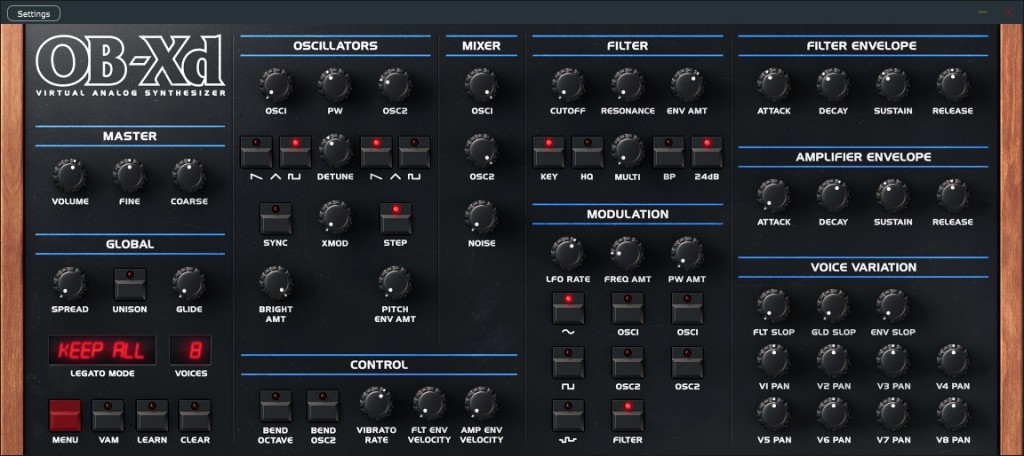discoDSP just released 2.0 of their open-source plug-in inspired by the Oberheim OB-X, with new features, Linux and high-res display support, and more.
It seems like the OB-X is the target of a lot of interest lately. And commercial plug-ins like Arturia’s OB-Xa – which I reviewed favorably – do give you loads of extras. (Arpeggiator, unison mode, extra generators, more voices, and tons of effects.)
The approach of the OB-Xd, though, is to simply focus on the synth, and retain the essentials of the Oberheim original – just not slavishly so. You BYO effects and whatnot, but certainly we have a lot of those in our hosts and plug-in collections anyway.
Most significantly, the OB-Xd is free and open source. You can pay US$49 for a supported copy, but it’s under a GPL license, with source code. I’m actually curious if that generates a reasonable amount of sales, as it would be an ideal for a lot of us open source fans. The software is effectively free for those who can’t afford it – a non-trivial issue in this time of global crisis. But you can also pay to support its further development. And the source code is still there for all, including now Linux OS support.

New in 2.0:
- 7x faster GUI controls.
- Linux build.
- Standalone app.
- Signed and notarized installers.
- Updated JUCE framework to 5.4.7 for better stability and compatibility.
- Updated Banks with 2.0 compatibility.
- Ilkka Rosma Dark Theme.
- macOS Catalina support.
- MIDI CC Learn.
- MIDI CC support.
- Parameter refactor.
- XML based skinning.
- HiDPI (Retina) ready GUI themes.
You get some minor tweaks the original lacked – like a continuous blendable multimode filter. (It’s HP-Notch(BP)-HP in 12 dB mode and 4-1 pole in 24 dB mode.) But in general, it gets the behavior and sound of the original model, just in software, with preset storage, and some pretty themes. (Those themes also involved community support.)
AU, VST2, and VST3 support, plus standalone – honestly standalone might be the ideal way to run it on Linux, and I could see a nice rig involving this and VCV Rack. (I better actually go try that, huh?) “How to run plug-ins on Linux and what’s going on with formats” is a topic for another day. (Maybe someone wants to volunteer to walk us through that?)
More:
https://www.discodsp.com/obxd/
https://github.com/reales/OB-Xd
Thanks to Patrick Gharapetian for the tip.
See also Sonic Projects’ plug-in and Reaktor recreation of OB-X.